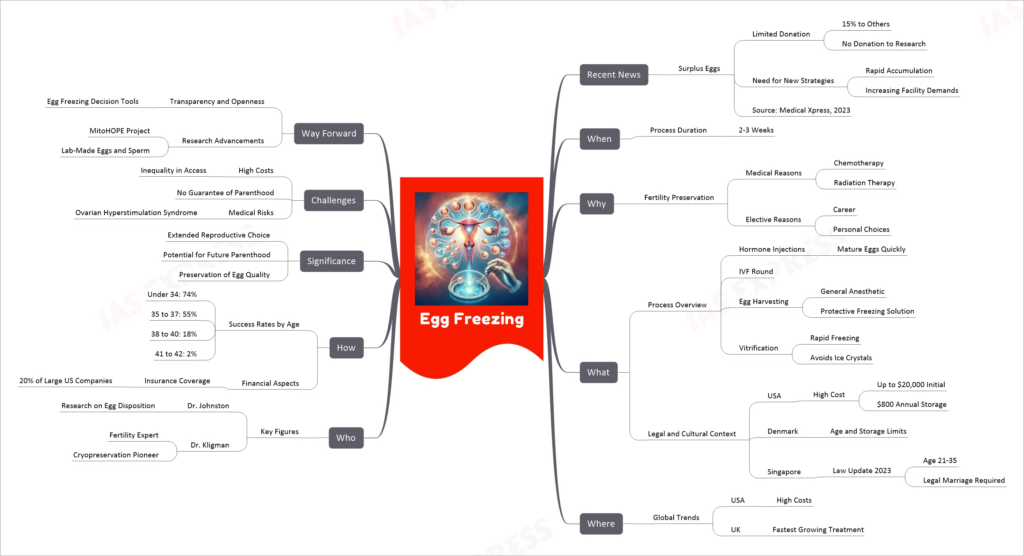Egg Freezing

Egg freezing, also known as cryopreservation, is a process where a woman’s eggs are extracted, rapidly frozen, and stored for future use. This fertility preservation technique, developed initially for patients undergoing treatments like chemotherapy, has become more widely available and is now an option for women who wish to delay childbearing for various reasons, including career or personal choices. The process involves hormone injections to mature eggs, followed by an IVF round and the harvesting of eggs under anesthesia. Despite its rising popularity and technological advancements, egg freezing presents challenges such as high costs, unequal access, and no guaranteed success. Recent data shows success rates decrease with age, highlighting the importance of informed decision-making in this personal and complex choice.

